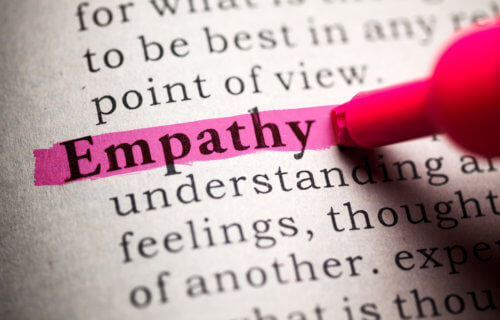MEXICO CITY — Scientists have unveiled a surprising connection between regular marijuana use and enhanced empathy. Cannabis users higher levels of emotional comprehension compared to non-users, according to their study. This finding challenges previous assumptions about cannabis’ impact on emotional processing.
By focusing on the anterior cingulate cortex (ACC), a key area in empathy and emotional processing, the study provides valuable insights into how cannabis consumption influences the brain’s ability to understand and share the emotions of others.
Marijana vs Cannabis: What’s the difference?
“Cannabis” and “marijuana” are terms often used interchangeably, but they have slightly different connotations and origins.
- Cannabis: This is a scientific term that refers to the plant genus Cannabis. It is often used in formal, scientific, and legal contexts. The Cannabis genus includes several species, notably Cannabis sativa, Cannabis indica, and Cannabis ruderalis. These species can be used for various purposes, including medicinal, recreational, and industrial (hemp).
- Marijuana: This term specifically refers to the parts of the Cannabis plant that contain psychoactive compounds, primarily THC (tetrahydrocannabinol), which is responsible for the plant’s intoxicating effects. The term “marijuana” is commonly used in informal and cultural contexts, and it typically refers to the leaves, flowers, stems, and seeds of the plant that are used to produce the psychoactive effects.
The reason these terms are often used interchangeably is that in common usage, especially in contexts related to drug use and legislation, they both refer to the same plant and its psychoactive uses. However, it’s important to note that “cannabis” can encompass a broader range of products and uses, including non-psychoactive varieties like hemp, which is used in producing fibers, seeds, and oils for various industrial and health-related products.
Cannabis and the Brain: Understanding the Connection
Cannabis use is widespread globally, with approximately 3.9% of the world’s population between 15 and 65 years old partaking in it. Of these users, a significant portion consumes cannabis daily or almost daily. The main psychoactive component of cannabis, THC, binds to cannabinoid CB1 receptors in the brain, notably in the anterior cingulate cortex (ACC). This area is crucial for cognitive and affective functions, such as empathy and processing of emotional stimuli.
Previous research has linked chronic cannabis use to changes in brain structure and function, including decreased CB1 receptor availability in the ACC.
The study involved two groups: 85 regular cannabis users and 51 non-users (control group). Participants were selected based on specific criteria, excluding those with neurological disorders, psychopharmaceutical use, depression, and other substance use disorders. This careful selection ensured that the observed effects could be more confidently attributed to cannabis use.

A subgroup of these participants also underwent resting state functional MRI (fMRI) scans. These scans are crucial for observing the brain’s activity at rest, particularly focusing on the ACC, which is also known for its high concentration of cannabinoid receptors.
Participants underwent the Cognitive and Affective Empathy Test (TECA), which measures empathic abilities, assessing both cognitive and affective components of empathy. This test includes subscales like Perspective Taking, Emotional Comprehension, Empathic Stress, and Empathetic Happiness, offering a comprehensive assessment of empathy.
Surprisingly, regular cannabis users scored higher in emotional comprehension, showing a better capacity to recognize and comprehend others’ emotional states. This enhanced emotional comprehension was linked to greater connectivity between the ACC and somatosensory areas of the brain in cannabis users compared to non-users. These areas are known for processing somatosensory states and could contribute to a more nuanced understanding of others’ emotions.
fMRI data revealed that cannabis users had greater connectivity between the ACC and areas involved in processing somatosensory information. This increased connectivity might enhance the ability to empathize by adding a somatosensory dimension to understanding others’ emotions.
A Different Perspective On Marijuana And Empathy
Contrary to some previous studies suggesting deficits in emotional perception among chronic marijuana users, this new research indicates enhanced emotional comprehension and greater functional connectivity in empathy-related brain areas in regular users. This suggests that cannabis consumption might have context-dependent effects on emotional processes, potentially enhancing social bonding and emotional understanding.
This study opens new avenues for understanding how cannabis affects the brain and emotional processing. It suggests potential positive effects of cannabis on mood and social interactions, which could have clinical applications. However, limitations include the subjective nature of cannabis consumption reports and the lack of comprehensive personality trait assessments. Additionally, the cannabis used in this study, primarily from Mexico, had lower THC levels than typically found in the U.S., which could influence the results.
“Although further research is needed, these results open an exciting new window for exploring the potential effects of cannabis in aiding treatments for conditions involving deficits in social interactions, such as sociopathy, social anxiety, and avoidant personality disorder, among others,” says co-author Víctor Olalde-Mathieu, PhD, of the Universidad Nacional Autónoma de México, in a statement.
The study is published in the Journal of Neuroscience Research.
